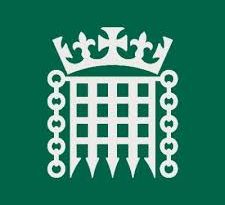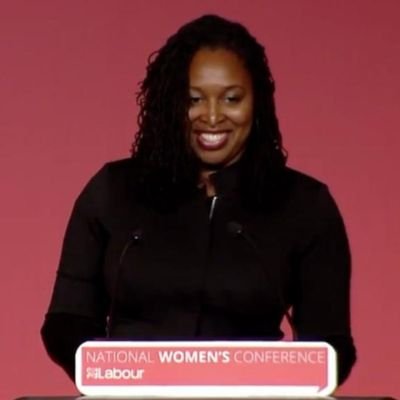Nick Gibb – 2015 Speech on Phonics
Below is the text of the speech made by Nick Gibb, the Minister of State for Schools, on 28 March 2015.
In To Kill a Mockingbird, after being scolded by her teacher for knowing how to read before she has been taught at school, 6-year-old Scout is consoled by her brother. Jem explains:
Don’t worry… Our teacher says Miss Caroline’s introducing a new way of teaching. She learned about it in college. It’ll be in all the grades soon. You don’t have to learn much out of books that way – it’s like if you wanta learn about cows, you go milk one, see?
Jem continues:
I’m just trying to tell you the new way they’re teachin’ the first grade, stubborn. It’s the Dewey Decimal System.
Scout goes on to reflect that:
The Dewey Decimal System consisted, in part, of Miss Caroline waving cards at us on which were printed ‘the,’ ‘cat,’ ‘rat,’ ‘man,’ and ‘you.’ No comment seemed to be expected of us, and the class received these impressionistic revelations in silence.
While Jem may be confusing the Dewey Decimal library classification system with John Dewey, the progressive educationalist, Harper Lee is of course satirising the ideology that gripped the US (and then, alas the UK) education system particularly from the mid-20th century onwards. Confidence in direct instruction was lost and replaced with a misguided belief in children’s ability to discover knowledge for themselves. One aspect of this was a move away from systematically teaching children to read through phonics and the introduction of learning to read by looking at words – what we all know now as ‘look and say’.
It took Rudolf Flesch and his seminal book Why Johnny Can’t Read to call into question this approach in the 1950s. As Flesch wrote in the introduction to the book:
Do you know that the teaching of reading never was a problem anywhere in the world until the United States switched to the present method around about 1925?
He continued:
ever since 1500 BC people all over the world – wherever an alphabetic system of writing was used – learned how to read and write by the simple process of memorising the sound of each letter in the alphabet.
The success of phonics versus ‘look and say’ has been contested since and that is why it’s so important that we are here today. I am grateful to the Reading Reform Foundation for convening this discussion and for your work advancing phonics in the UK since the late 1980s. I would also like to take the opportunity to thank all of the experts in this field who continue to contribute to the debate in support of phonics and who have taught me so much over the last 10 years – Ruth Miskin, Jennifer Chew, Sue Lloyd, Debbie Hepplewhite and Marlynne Grant to name but a few.
What I came to appreciate from you and from my experiences is the importance of teaching reading. This was highlighted to me on many occasions but one which stands out was a visit to a primary school in 2009 where I observed a one-to-one reading lesson with a girl in her last year of primary school, aged 11. The teacher showed the pupil simple words on flashcards, but the girl struggled with most of them. When she managed the word ‘even’, I asked if she could still read the word with the first ‘e’ covered up; she could not. The problem was clear. For the same reason that “Johnny couldn’t read … for the simple reason that nobody ever showed him how”, this girl could not read because she had never been taught to read. Instead, she had been drilled to recognise the word ‘even’.
Sadly, this case was not an anomaly. Too many other pupils had similar experiences and expectations that were set far too low. In 2010, 1 in 5 children left primary school unable to read at the expected standard and 1 in 11 children left primary school with a reading ability no better than would be expected of a 7-year-old.
This was inexcusable. Poor literacy disadvantages young people during the course of their education and continues to hold them back throughout adult life. The OECD Survey of Adult Skills published in 2013 showed that unemployed adults are twice as likely to have poor level of literacy as those who are in full-time employment. In their summary of England and Northern Ireland’s results, the OECD highlighted the fact that England was the only country that participated in the survey where young adults did not have better literacy skills than those approaching retirement age.
It is also concerning that the UK ranked 47th out of 65 OECD countries on a measure of the number of young people who read for enjoyment. Six out of 10 teenagers in the UK regularly read for pleasure, compared to levels as high as 90% in countries like Kazakhstan, Albania, China and Thailand. The difference in reading ability between those pupils who never read for enjoyment, and those who read for even half an hour a day, is equivalent to a whole year of schooling at age 15. That is why the initiatives we announced on World Book Day earlier this month to encourage reading for pleasure – from book clubs to library membership – are so important.
But to address the root cause of these challenges, the effective teaching of reading in our schools is crucial. In government, as we have delivered far-reaching reforms to our education system, we have made sure that these are grounded firmly in evidence. And with regard to the effective teaching of reading and raising standards of literacy, a substantial body of evidence shows that systematic synthetic phonics is the most effective way to teach all children to read, and that’s why we changed the national curriculum to make the requirements for phonics clearer.
To quote one report from the Australian National Inquiry into the Teaching of Literacy:
The evidence is clear […] that direct systematic instruction in phonics during the early years of schooling is an essential foundation for teaching children to read. […] Moreover, where there is unsystematic or no phonics instruction, children’s literacy progress is significantly impeded, inhibiting their initial and subsequent growth in reading accuracy, fluency, writing, spelling and comprehension.
We have made significant progress, with an increasing number of schools recognising that phonics teaching is the most effective approach. The new national curriculum, introduced in September last year highlights the importance of phonic knowledge and the decoding of words. Between 2011 and 2013, the government provided match funding to schools for phonics training and resources. More than 14,000 schools benefited from the £23.7 million we made available. We have published core criteria for effective phonics programmes and the catch up premium, worth £500 per pupil, also supports secondary schools to support pupils who did not attain level 4 or above in reading at the end of key stage 2. I would like to thank Gordon Askew for all the work he did in that period to support the department.
One of the most important developments has been the introduction of the phonics screening check for pupils at the end of year 1 in 2012. The check measures how many of 40 words and non-words pupils can decode successfully and helps to identify who may need further support. In 2012, 58% of pupils taking the check met the national standard. In 2013, it was 69% and by 2014, the proportion of pupils meeting the standard had risen to 74%: equivalent to 102,000 more 6-year-old children on track to read more effectively.
These results are encouraging. In 611 primary schools, some in the most deprived parts of the country, at least 95% of pupils met the expected standard in 2014, and many schools have recognised the positive impact the teaching of phonics has on reading and literacy. For example, Ark academy chain has set itself a target of “100% of pupils being proficient early readers” and in 2014 2 Ark schools achieved a 100% success rate – Ark Conway and Ark Globe. I have seen some of the strengths of the Ark approach for myself. On a recent visit to Ark Priory Primary in Ealing, I was impressed that the year 1 pupils were reading novels such as Horrid Henry.
Despite the improvements that have been made, there is significant disparity between local authorities, with some achieving a success rate of more than 81% in 2014 – from Darlington and Harrow to Solihull, and others not reaching even 70% – including Derby, Leicester, Norfolk and Nottingham. Additionally, children who do not meet the national standard in year 1 retake the check at the end of year 2 and in 2014, 12% of pupils had still not met the expected standard of decoding by the end of year 2 – 71,000 children.
That is why we are determined to do more. The Phonics Partnership Grant Programme, announced in February, will see 12 to 15 networks established. Led by schools excelling at phonics teaching, the groups will work across schools to improve the quality of phonics teaching. Given the value of the phonics screening check as a diagnostic tool to identify whether pupils need further support, this week we said that we will run a pilot to extend the retake to year 3. This will be a voluntary pilot working with 300 schools, including some junior schools. Year 3 pupils will retake the check if they have not achieved the expected standard at the end of year 2 in summer 2015 (having initially taken the check at the end of year 1 in 2014). I hope this pilot will help us to understand why pupils still do not meet the standard, and the kind of support and interventions schools offer pupils who don’t meet the standard by the end of year 2.
I am confident that the pilot will help us to further develop our evidence-based approach to policy-making and the successful implementation of teaching phonics in schools.
With success in the basics of decoding words, pupils will be able to move on to reading with increased fluency and speed, which will enable them to develop a love of reading for pleasure and the habit of reading for pleasure. At key stage 2 I want us to reach a position where every child is routinely reading 5 children’s books a month. In short, we will continue to champion the importance of what could not be a more worthwhile objective: fluent reading.
Thank you.



